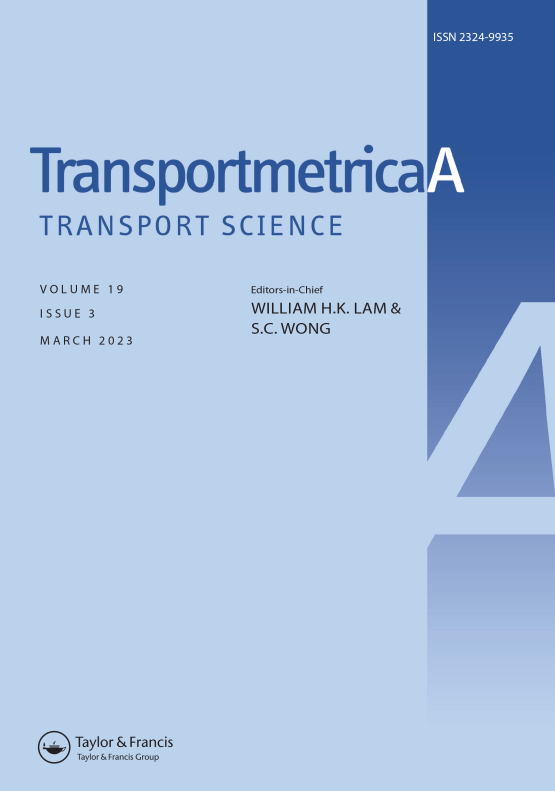Submit a Manuscript to the Journal
Transportmetrica A: Transport Science
For a Special Issue on
AI-driven prediction and optimization for smart rail transit systems
Manuscript deadline

Special Issue Editor(s)
Jinlei Zhang,
Beijing Jiaotong University
zhangjinlei@bjtu.edu.cn
Wei Ma,
Hong Kong Polytechnic University
wei.w.ma@polyu.edu.hk
Xinjie (Daniel) Xing,
University of Liverpool
X.Xing3@liverpool.ac.uk
Lixing Yang,
Beijing Jiaotong University
lxyang@bjtu.edu.cn
Lijun Sun,
McGill University
lijun.sun@mcgill.ca
AI-driven prediction and optimization for smart rail transit systems
The rapid expansion of rail transit systems, including subways, light rail, regional rail, inter-city railways, and high-speed railways, has introduced numerous challenges, such as congestion and operational complexities. Emerging technologies like artificial intelligence and large-scale data mining have facilitated the network planning, demand prediction, operation optimization, and maintenance of smart rail transit systems, thus meeting the increasing travel demand and ensuring efficient travel experiences for travelers. To bring together these points, this special issue seeks to collect the latest academic advancements and practical applications in rail transit systems. We aim to explore innovative AI-driven technologies for intelligent planning, predictive analytics, operational efficiency, and proactive maintenance in modern rail networks.
We welcome original research articles and reviews on key topics, including but not limited to:
- Network planning: Data-driven and AI-enhanced strategies for line planning, long-term passenger flow forecasting before operation, etc.
- Smart prediction: Deep learning or large language model-based approaches for normal and abnormal passenger flow prediction, inter-city demand prediction, etc.
- Operation optimization: AI-driven optimization of train timetables, rolling stock circulation plans, and passenger flow management strategies to enhance operational efficiency.
- Efficient maintenance: AI-powered failure prediction, remaining useful life estimation, and automated inspection using drones and robots, as well as anomaly detection for issues such as cracks, smoke, and fire in transit systems.
- Interaction with multi-modal Transportation: Investigation of rail transit interactions with other transportation modes, including mobility-as-a-service (MaaS) frameworks and collaborative passenger flow prediction.
- Intelligent Optimization Solutions: Dynamic and real-time optimization approaches, such as “predict-then-optimize” strategies, to enhance decision-making in rail transit systems.
Submission Instructions
The paper must be formatted according to the general guidelines of “Transportmetrica A: Transportation Science”.
- Deadline for first submission: 30 September, 2025
- Deadline for first review: 31 December, 2025
- Deadline for second revised submission: 28 February, 2026
- Deadline for second review/approval of manuscript: 31 May, 2026
- Final manuscript: 31 July, 2026
